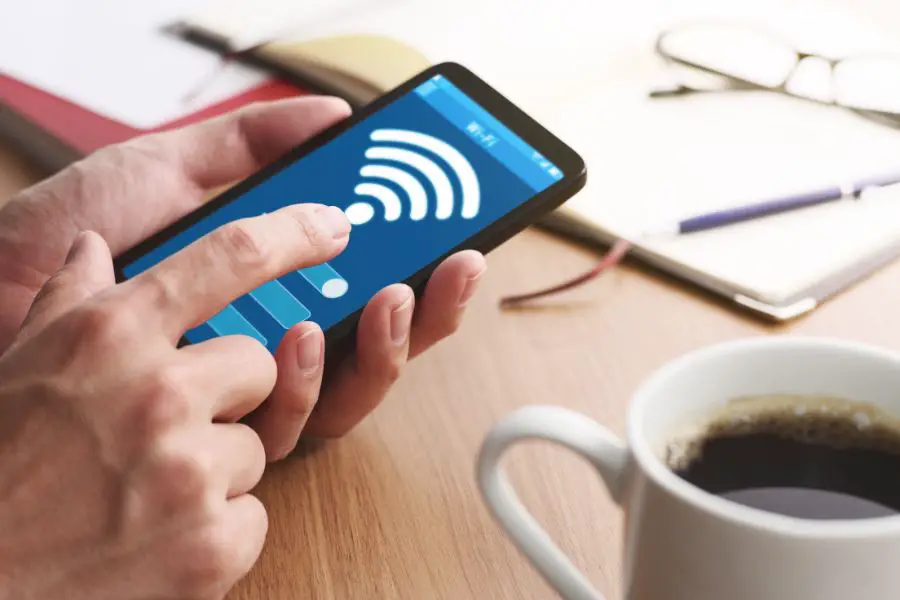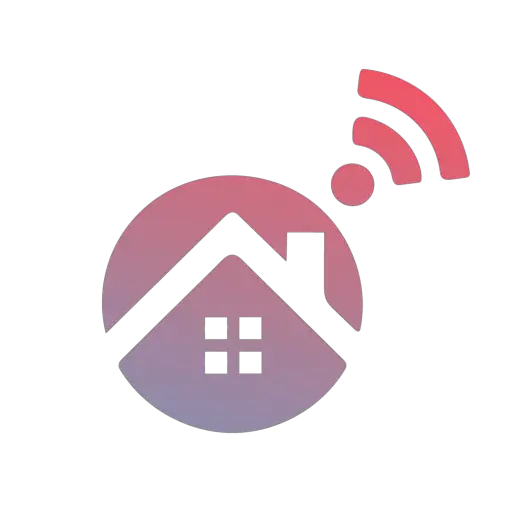Future generations will look back on the pre-Smart lock era and wonder how people managed in those dark ages. Smart locks offer incredible functionality and generally increased security, especially for those devices which do not use Wi-Fi connectivity.
Most Smart Locks will operate without Wi-Fi access; however, this will generally result in degrading the convenience features of a wi-fi-enabled smart lock. Bluetooth smart locks need no Wi-Fi and are more secure than wi-fi-enabled devices but have less functionality.
If you are looking to install a smart lock, this article details the different communication protocols on offer and the advantages and disadvantages of each one.

Not All Smart Locks Need Wi-Fi
There are several types of smart locks using other communication technologies, including:
Several smart locks offer internet capability as an option; however, most can still function without Wi-Fi access.
What Are The Benefits Of Bluetooth Connected Smart Lock?
A smart lock that is connected via blue tooth offers the following benefits.
Bluetooth Connected Smart Lock Is More Secure
A smart lock connected by a Bluetooth-enabled device is more secure than one connected via Wi-Fi. Bluetooth security has standards that authenticate, authorize, encrypt, and keep your data private.
Bluetooth protocols require a pin code "handshake" to pair a primary device, often a smartphone which means that unauthorized is severely restricted.
A potential “bad actor” would have to access the lock itself before gaining access.
Bluetooth Smart Locks Allow Permitted Third Party Access
If someone is arriving at your home when you are not there but want to let them in, a Bluetooth-enabled smart lock will allow you to send a limited-time access code (called an E-Key) to the person's phone, which they can key in on once they are at the door.
Disadvantages Of Bluetooth Connected Smart Lock
A Bluetooth-enabled smart lock does not offer any of the remote features which a wi-fi-enabled smart lock does, these include:
Benefits Of Z-Wave and Zigbee Connected Smart Lock
Zigbee and Z-Wave systems are low-energy mesh networks that allow devices to communicate with each other without using Wi-Fi or Bluetooth.
The Z-Wave and Zigbee protocols need a separate receiver somewhere on your Wi-Fi network to send and receive signals between devices.
The benefits are:
It Is Easier To Set Up A Z-Wave/ Zigbee Enabled Smart Lock
Z-Wave is easier to set up than Wi-Fi because you don’t have to worry about it interfering with your home Wi-Fi signal.
Most Z-Wave devices automatically detect one another, making adding new gadgets to your home system quick and straightforward. It’s also flexible — thousands of different devices work on Z-Wave frequencies, so you’ll be able to find one to suit your needs.
No Range Extenders For A Z-Wave/ Zigbee Enabled Smart Locks
Because Z-Wave/Zigbee devices install as part of a mesh network, each enabled device acts as a mini-hub and transmits the signals from one device to the next.
If the smart lock is in a place where the Wi-Fi signal doesn’t reach or is not strong enough, as long as there is a -Wave or Zigbee Enabled device in the range, that works like the range extender.
Connect To Wi-Fi Systems
Most Z-Wave/ Zigbee smart locks need their hubs and only connect to the Wi-Fi through these.
The advantage is that Z-Wave or Zigbee smart locks offer the same advantages as a Wi-Fi Enabled Smart Lock.
What Are The Benefits Of A Wi-Fi Enabled Smart Lock?
The optimal solution is to install a device that can integrate into an existing smart home system.
Being connected by Wi-Fi means that all of the potential remote benefits a smart lock offers are available. Depending on the smart lock which is installed, these may include:
Let's take a look at these benefits and features in detail.
Remote Access
Have you ever got to the front door with your hands full of shopping, only to find you left your house keys in the car? Do you leave the shopping at the door while you rush back to the car, realizing that your dogs may scrounge into all the yummy food parcels?
A Wi-Fi-enabled smart lock eliminates this dilemma because you can unlock the door while still in the car.
Or perhaps you have been delayed at the mall only to receive a phone call from your friends you invited for dinner letting you know they are waiting outside the house.
No rush; simply unlock the Wi-Fi-enabled smart lock to let them in.
Another scenario is you have left the house in a hurry to get to an appointment, and halfway there, you start to doubt whether you locked the front door or not.
With a Wi-Fi integrated smart lock, you can access the lock on your phone, check its status, and, if necessary, instruct it to lock.
External Monitoring
A Wi-Fi-enabled smart lock keeps a record of every time it is used, and some go a step further by keeping a video record of everyone who has entered and left the house.
Imagine you have gone away for a romantic weekend with your partner and have left the children in charge with the explicit instruction that there are to be no parties.
A Wi-Fi-enabled smart lock with video facilities is a wonderfully discreet way to keep tabs on your children and their friends.
Smart Home Integration
Many smart locks can be integrated into existing smart networks using Google HomeKit, Apple Home, and Amazon Echo Plus.
It enables the smart lock to appear in the same menu options as the other smart devices and allows you to operate a fully integrated home.
What Are The Disadvantages Of Wi-Fi Enabled Smart Locks?
Unfortunately, there are some disadvantages of Wi-Fi enabled smart locks. Let’s explore them in detail.
Wi-Fi Enabled Smart Locks Are Less Secure
Smart locks not connected to a Wi-Fi network have more rugged security standards than Wi-Fi-enabled locks. If you choose a wi-fi-enabled smart lock, you need to be mindful that it is less secure than a non-wi-fi-enabled system.
Unfortunately, some bad actors worldwide spend their time finding ways to hack smart home devices.
If a series of smart locks are hacked and the information is sold on the dark web, it may compromise your safety. While this may seem over the top and exaggerated, it is a real potential and a factor that must be kept in mind.
There are three main vulnerabilities you should be aware of;
- The smart lock is capable of using AES with at least 128-bit encryption. Of course, the higher is better, so a lock with 256-bit encryption is more secure.
- Does the smart lock store your access code information on the device or the hub?
- If your mobile phone is compromised is another area to consider.
The counter point of view is that intruders rarely enter via the front door and will generally look for more accessible and less noticeable access at the rear of the house, which may not be visible from the street.
Wi-Fi Enabled Smart Locks Are Less Reliable
A smart lock that is not connected to the internet is more reliable. Why?
The reason for this is that a device that is connected to the internet has more dependencies that have to keep running.
Being connected to a Wi-Fi means that:
While these are generally very reliable, requiring them to be on adds a layer of possible failure points to the Wi-Fi-enabled smart lock system.
Conclusion
Modern technology intends to make life much easier, and the smart lock is one of the sophisticated devices that achieves just that. With a Wi-Fi-enabled smart lock, there is no need to worry about whether you lock the front door or get back to your home to check it.
Simply check your smartphone and ensure the lock is set; if not, you can do so remotely. Similarly, you can keep track of everyone accessing the door without having a costly security system.
